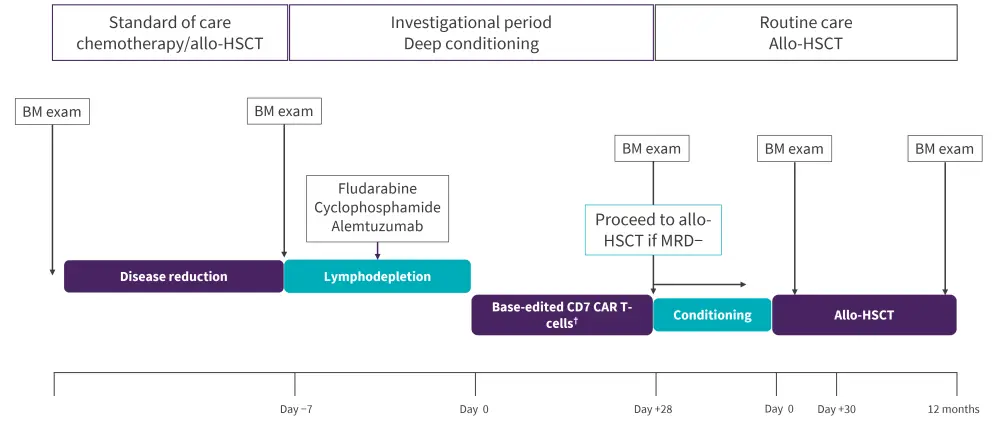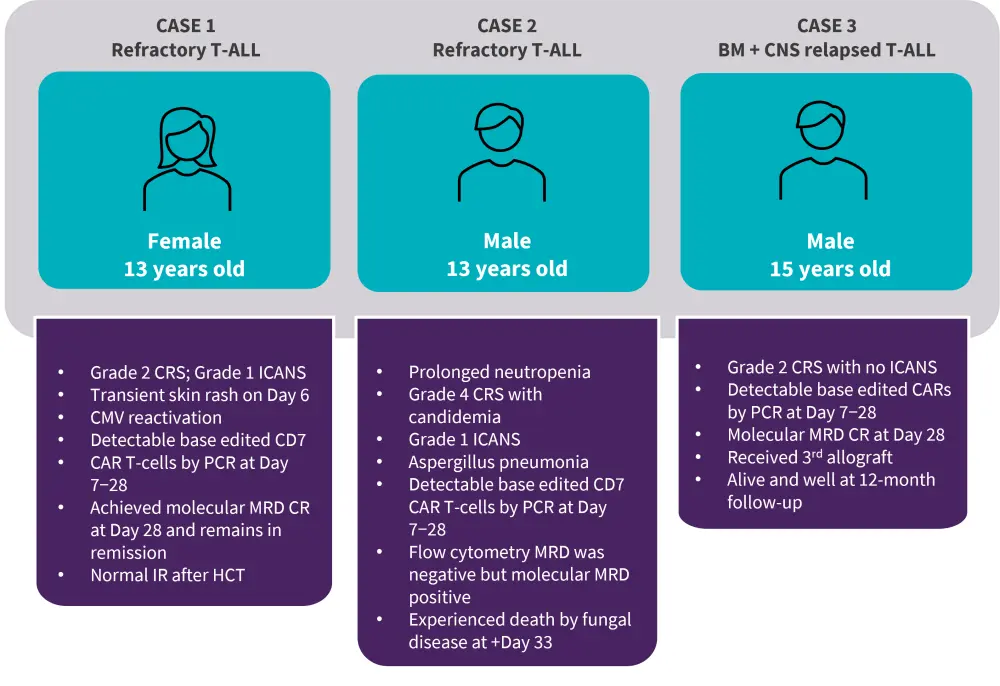All content on this site is intended for healthcare professionals only. By acknowledging this message and accessing the information on this website you are confirming that you are a Healthcare Professional. If you are a patient or carer, please visit Know ALL.
The all Hub website uses a third-party service provided by Google that dynamically translates web content. Translations are machine generated, so may not be an exact or complete translation, and the all Hub cannot guarantee the accuracy of translated content. The all and its employees will not be liable for any direct, indirect, or consequential damages (even if foreseeable) resulting from use of the Google Translate feature. For further support with Google Translate, visit Google Translate Help.
The ALL Hub is an independent medical education platform, sponsored by Amgen, Autolus, Jazz Pharmaceuticals, and Pfizer and supported through an educational grant from the Hippocrate Conference Institute, an association of the Servier Group. Funders are allowed no direct influence on our content. The levels of sponsorship listed are reflective of the amount of funding given. View funders.
Now you can support HCPs in making informed decisions for their patients
Your contribution helps us continuously deliver expertly curated content to HCPs worldwide. You will also have the opportunity to make a content suggestion for consideration and receive updates on the impact contributions are making to our content.
Find out more
Create an account and access these new features:
Bookmark content to read later
Select your specific areas of interest
View ALL content recommended for you
Base edited CD7 CAR T-cell therapy for childhood R/R T-ALL: preliminary results from a phase I trial
The survival outcomes for patients with relapsed/refractory (R/R) T-cell acute lymphoblastic leukemia (T-ALL) are poor; therefore, there is a need for novel targeted therapies in this patient population.
Here, we summarize preliminary results of a phase I trial (EudraCT:2021-004312-25) evaluating the efficacy and safety of CD7-directed chimeric antigen receptor (CAR) T-cell therapy in children with R/R T-cell ALL, presented by Chiesa at the 50th Annual Meeting of the EBMT.
Study design1
This was an open-label, single-center phase I study including patients aged 6 months to 16 years with R/R CD7+ (>99%) T-cell malignancies and bone marrow involvement who were eligible for allogeneic hematopoietic stem cell transplantation (allo-HSCT).
- The treatment schema is outlined in Figure 1
- The primary endpoint was safety
- Secondary endpoints included
- disease remission by Day 28;
- 1-year overall survival and disease-free survival;
- time and duration of remission;
- expansion, persistence, and elimination of base-edited CAR T-cells; and
- side effects.
Figure 1. Treatment schema*

Allo-HSCT, allogeneic hematopoietic stem cell transplantation; BM, bone marrow; CAR, chimeric antigen receptor; MRD, minimal residual disease.
*Data from Chiesa.1
†Dose: 0.2−2.0 × 106 per kilogram; max: 5 × 104 per kilogram TCRαβ T cells
Key findings1,2
- A total of 10 patients were included in the study
- Patient 1 with refractory T-ALL underwent a bone marrow transplantation from a 10/10 matched-unrelated donor after total body irradiation/etoposide conditioning
- experienced early relapse at 6 weeks post-HSCT
- had 9% disease prior to lymphodepletion
- Patient 2 had refractory T-ALL and 80% blasts prior to lymphodepletion
- Patient 3 had bone marrow and central nervous system relapsed T-ALL following two allo-HSCTs
- The outcomes for the three patients who subsequently received base-edited CD7-directed CAR T-cell therapies are summarized in Figure 2
Figure 2. Outcomes of CD7-directed CAR T-cells in children with R/R T-ALL*

CAR, chimeric antigen receptor; CMV, cytomegalovirus; CNS, central nervous system; CR, complete remission; HSCT, hematopoietic stem cell transplantation; ICANS, immune effector cell-associated neurotoxicity syndrome; IR, immune reconstitution; MRD, minimal residual disease; PCR, polymerase chain reaction; T-ALL, T-cell acute lymphoblastic leukemia.
*Data from Chiesa.1
| Key learnings |
|
References
Please indicate your level of agreement with the following statements:
The content was clear and easy to understand
The content addressed the learning objectives
The content was relevant to my practice
I will change my clinical practice as a result of this content




